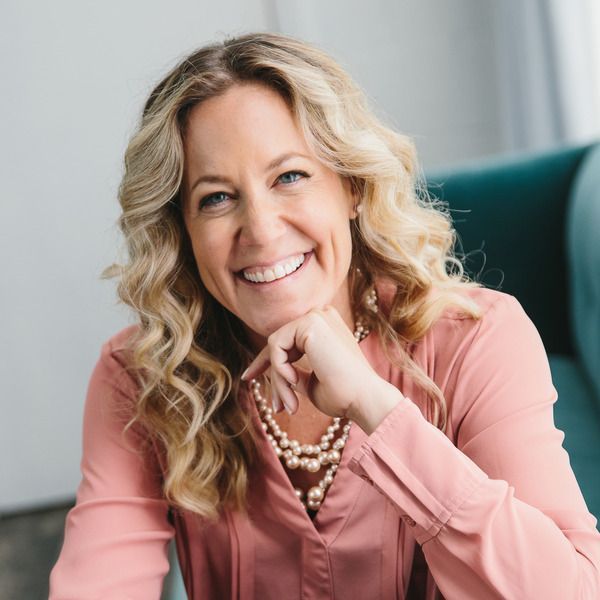How Healthcare Professionals Can Integrate Parent Coaching in Practice

Healthcare providers are often the first people parents turn to when they’re worried about a child’s development, behavior, or emotional well-being. Yet even the most experienced pediatricians, occupational therapists, and counselors sometimes feel limited by short appointment windows and treatment plans that don’t always address the heart of a family’s challenges: the relational patterns at home.
Parent coaching bridges that gap. It helps healthcare professionals go beyond symptom management and empower families to create environments where healing, growth, and regulation can truly take root.
By integrating parent coaching principles into your practice, you can strengthen parent engagement, improve treatment adherence, and foster more sustainable outcomes for children and families alike.
Integrating Coaching Principles into Pediatric and Therapy Sessions
Healthcare professionals already possess many of the core skills that make great parent coaches, including empathy, observation, and a commitment to helping others thrive.
Integrating coaching doesn’t mean replacing your clinical expertise; it means expanding it to include relationship-centered communication and nervous-system-informed support.
Here’s how that integration can begin to take shape in practice:
1. Shift from Expert to Collaborative Guide
Parents usually come to healthcare providers expecting answers. But coaching changes the dynamic. It's less about telling families what to do and more about discovering what works, side by side.
Instead of “Here’s what you need to do,” a coaching-informed approach might sound like, “What have you noticed helps your child feel calmer in those moments?”
This empowers parents to explore their own insights, builds confidence, and positions you as a partner in problem-solving rather than a prescriber of solutions.
2. Use the PEACE Framework for Regulated Interactions
At the Jai Institute for Parenting, one foundational tool is the PEACE Process, which helps professionals create emotional safety in any interaction:
- Pause: Slow down before responding to emotional intensity, yours or the parent’s.
- Empathize: Acknowledge what’s happening in the parent’s nervous system.
- Attune: Reflect what you see and hear without judgment.
- Curious Inquiry: Ask open-ended questions that invite reflection.
- Empower: Guide parents toward their own next steps and capacities.
Applying this model during medical consultations or therapy sessions can reduce tension, build trust, and help parents feel seen and capable.
3. Reframe “Compliance” as “Connection”
Traditional healthcare models often measure success by compliance, asking questions like “did the family follow through on recommendations?” Coaching reframes this through the lens of connection.
When parents feel respected, understood, and empowered, they’re far more likely to sustain behavior changes. A parent who feels shame or confusion may avoid follow-up appointments, while a parent who feels supported returns with questions and reports progress.
4. Integrate Nervous System Education
Parents today are increasingly interested in understanding trauma, regulation, and stress physiology. By offering a brief, accessible explanation of the nervous system and how stress responses influence a child’s behavior, or how co-regulation works, you can provide context that can transform how parents respond at home.
For instance:
“When your child’s nervous system goes into fight-or-flight, reasoning doesn’t work. What helps first is connection. Your calm body helps their body feel safe again.”
These micro-teachings validate parents’ struggles and give them actionable insight aligned with the science of emotional development.
Communication Strategies for Family-Centered Care
Parent coaching elevates family-centered care from a principle to a lived practice. The following communication strategies are especially effective when working with parents in healthcare or therapy settings.
1. Reflective Listening and Validation
Parents often arrive in a state of guilt or worry: “I must be doing something wrong.” Reflective listening disarms shame by showing understanding before offering advice.
Try:
“It sounds like you’ve been doing everything you can to help your child, and it’s been really stressful not knowing what else to try.”
This small moment of validation regulates the parent’s nervous system, opening them to receive guidance and engage in problem-solving.
2. Powerful Questions That Invite Ownership
Instead of telling parents what to do, ask questions that elicit curiosity and insight:
- “What do you notice your child responds to best when they’re upset?”
- “How do you take care of yourself after a hard day?”
- “What’s one small shift that might make things feel easier at home?”
These questions transform the appointment from a one-way consultation into a two-way collaboration.
3. Normalizing the Learning Curve
Parenting, like healing, is developmental. Reminding parents that growth takes time and that missteps are part of the process helps reduce perfectionism and defensiveness.
“You’re learning a new language of connection. Every attempt counts, even when it doesn’t go perfectly.”
This normalizing stance helps parents stay engaged with interventions instead of abandoning them when challenges arise.
4. Bringing Coaching Into Multidisciplinary Teams
For professionals in hospitals, schools, or clinics, parent coaching language can be integrated across care teams. When everyone, from physicians to therapists to educators, uses a shared coaching framework, families experience consistency and clarity.
Examples include:
- Starting meetings with appreciation for the parents’ efforts before discussing goals.
- Framing feedback around strengths rather than deficits.
Collaborating on family-centered plans that prioritize regulation and connection alongside skill-building.
Case Studies from Pediatric Settings
Parent coaching principles are being successfully integrated into pediatric and therapy environments worldwide. Here are three examples that illustrate the possibilities.
Case 1: Pediatrician Supporting Emotional Regulation
Dr. Lopez, a pediatrician, noticed frequent visits from parents concerned about “defiant” behavior in their preschoolers. Rather than focusing solely on behavior charts or discipline tactics, she began incorporating brief coaching conversations during checkups.
She used questions like:
“What’s happening right before the meltdown?”
“How do you usually respond when it starts?”
Then she taught a simple nervous system regulation practice: deep breathing together before giving instructions. Parents later reported fewer power struggles and a stronger sense of connection at home, without any new medication or formal therapy referrals.
Case 2: Occupational Therapist Enhancing Parent Involvement
An occupational therapist working with children with sensory integration challenges noticed that parental stress often disrupted progress. After completing parent coach certification, she shifted her session structure.
The first five minutes became parent check-in time, focused on the caregiver’s emotional state and confidence. She modeled regulation techniques for both parent and child, integrating reflection after each session.
The result: parents felt more empowered, carryover between sessions increased, and treatment outcomes improved significantly.
Case 3: Family Nurse Practitioner Building a Coaching-Infused Practice
A family nurse practitioner serving rural families wanted to reduce dependency on frequent appointments for non-urgent behavioral issues. She began offering optional “parent coaching sessions” between visits, whether virtual or in-person, that were focused on communication, boundaries, and self-regulation.
Within six months, the families of her patients reported better adherence to medical plans and less parental burnout. The practitioner found greater professional fulfillment and a new revenue stream that complemented her existing services.
Case 4: Building a Coaching-Informed Pediatric Practice At
Ollie Pediatrics
Dr. Ramses Rivero recognized a truth that many providers feel but rarely acknowledge: even the best medical care can fall short if parents leave appointments feeling unseen, overwhelmed, or unsure about how to support their child at home.
To bridge that gap, Dr. Rivero certified three members of his team through the Jai Institute for Parenting’s Parent Coach Certification Program. His goal was to bring a more holistic, emotionally attuned approach to family care.
Now, when a family visits Ollie Pediatrics, they don’t just receive medical guidance. They also have access to coaching-informed professionals who help parents understand their child’s emotional and nervous system needs. The result is a more connected care model: pediatricians and parent coaches working together to address both the physiological and relational roots of a child’s well-being.
Parents report feeling calmer, more confident, and better equipped to support their children between visits, while Dr. Rivero and his team describe a renewed sense of purpose and fulfillment in their work.
Ollie Pediatrics has become a model for what’s possible when modern medicine and parent coaching meet: a practice where science and empathy coexist, and families thrive.
Steps to Add Coaching to Your Practice
Integrating parent coaching doesn’t require reinventing your entire professional identity. It begins with curiosity, training, and intention.
Here’s a roadmap to get started.
1. Explore Parent Coaching Methodology
Begin by familiarizing yourself with the foundations of parent coaching. Look for programs rooted in attachment science, nervous system regulation, and nonviolent communication, like the Jai Institute for Parenting’s globally recognized Parent Coach Certification Program.
You’ll learn frameworks for emotional attunement, regulation, and communication that can be integrated immediately into patient or client interactions.
2. Obtain Parent Coach Certification
Formal training deepens your capacity to hold space for families beyond the limits of your professional scope. Jai’s certification includes:
- Personal Transformation: Understanding your own nervous system and attachment patterns.
- Coaching Skills: Learning structured, evidence-based processes to guide clients.
- Applied Practice: Coaching real parents under supervision.
Most healthcare professionals complete certification within 6–7 months, with flexible scheduling that accommodates full-time clinical work.
3. Integrate Coaching Conversations into Existing Appointments
Start small. Dedicate a few minutes of each session to check in with parents’ emotional experience, not just their child’s progress. Use reflective questions and attunement practices to model emotional safety.
These micro-coaching moments often create the biggest impact because they help parents feel capable, connected, and seen.
4. Offer Dedicated Parent Coaching Sessions
Once you’re certified, you can expand your services to include structured coaching sessions, either as part of treatment plans or as a separate offering.
Healthcare providers find this especially beneficial because it allows time for deeper work with families who are ready to make long-term changes.
5. Join a Community of Practice
Integrating coaching into healthcare is both innovative and deeply relational. Surrounding yourself with a community of fellow coaches ensures continued learning, peer support, and shared resources.
Graduates of
Jai’s Parent Coach Certification gain access to ongoing education, advanced training, and a global network of conscious professionals committed to transforming family systems from the inside out.
The Future of Healthcare Is Relationship-Centered
The science is clear: when parents feel supported, children thrive. By integrating parent coaching into healthcare and therapy settings, professionals can bridge the gap between clinical expertise and family transformation.
Whether you’re a pediatrician helping parents manage stress, a therapist guiding emotional development, or a nurse seeking a deeper connection with families, parent coaching offers tools that elevate every aspect of care.
At its heart, this work is about restoring trust between parent and child, between professional and family, between body and mind. And when that trust is rebuilt, healing follows.
Meet Your Author, Kiva Schuler
Jai Founder and CEO
Kiva’s passion for parenting stemmed from her own childhood experiences of neglect and trauma. Like many of her generation, she had a front row seat to witnessing what she did not want for her own children. And in many ways, Jai is the fulfillment of a promise that she made to herself when she was 16 years old… that when she had children of her own, she would learn to parent them with compassion, consistency and communication.
Kiva is a serial entrepreneur, and has been the marketer behind many transformational brands. Passionate about bringing authenticity and integrity to marketing and sales, she’s a sought after mentor, speaker and coach.
Share This Article:
Curious for more?














